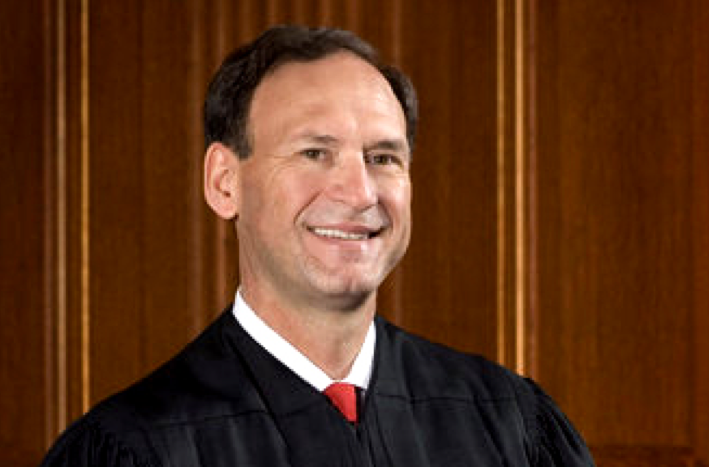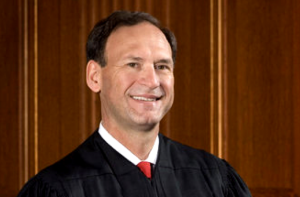

As you’re all too painfully aware by this point, Save Jerseyans, Justices Scalia, Kennedy (yes, Kennedy), Thomas, and Alito are are the last four remaining defenders of the Republic on the U.S. Supreme Court.
There’s no shortage of analysis out there right now about ObamaCare’s High Court affirmation. Save your time; the following excerpt of the aforementioned justices’ Obamacare dissent clearly sets forth the constitutional case again the President’s signature legislation, particularly Part II of Justice Roberts’ brief, titled “THE MINIMUM COVERAGE PROVISION IS INDEPENDENTLY AUTHORIZED BY CONGRESS’S TAXING POWER.”
Absorb this:
[T]o say that the Individual Mandate merely imposes a tax is not to interpret the statute but to rewrite it. Judicial tax-writing is particularly troubling. Taxes have never been popular, see, e.g., Stamp Act of 1765, and in part for that reason, the Constitution requires tax increases to originate in the House of Representatives. See Art. I, §7, cl. 1. That is to say, they must originate in the legislative body most accountable to the people, where legislators must weigh the need for the tax against the terrible price they might pay at their next election, which is never more than two years off. The Federalist No. 58 “defend[ed] the decision to give the origination power to the House on the ground that the Chamber that is more accountable to the people should have the primary role in raising revenue.” United States v. Munoz-Flores, 495 U. S. 385, 395 (1990). We have no doubt that Congress knew precisely what it was doing when it rejected an earlier version of this legislation that imposed a tax instead of a requirement-with-penalty. See Affordable Health Care for America Act, H. R. 3962, 111th Cong., 1st Sess., §501 (2009); America’s Healthy Future Act of 2009, S. 1796, 111th Cong., 1st Sess., §1301. Imposing a tax through judicial legislation inverts the constitutional scheme, and places the power to tax in the branch of government least accountable to the citizenry. […]
The Government’s opening brief did not even address the question—perhaps because, until today, no federal court has accepted the implausible argument that §5000A is an exercise of the tax power. And once respondents raised the issue, the Government devoted a mere 21 lines of its reply brief to the issue. Petitioners’ Minimum Coverage Reply Brief 25. At oral argument, the most prolonged statement about the issue was just over 50 words. Tr. of Oral Arg. 79 (Mar. 27, 2012). One would expect this Court to demand more than fly-by-night briefing and argument before deciding a difficult constitutional question of first impression.
Brian McGovern and I will have to nerd-out and discuss the taxing power at length tomorrow. It’s going to be a hot topic now!



Thank God that the Chief Justice didn't succumb to the partisan lies about the Affordable Healthcare Act. I wish that Fox News was turning over in its grave…but alas, that is not to be. Thank you Justice Roberts for standing up for the little guy. God Bless YOu.
AMEN